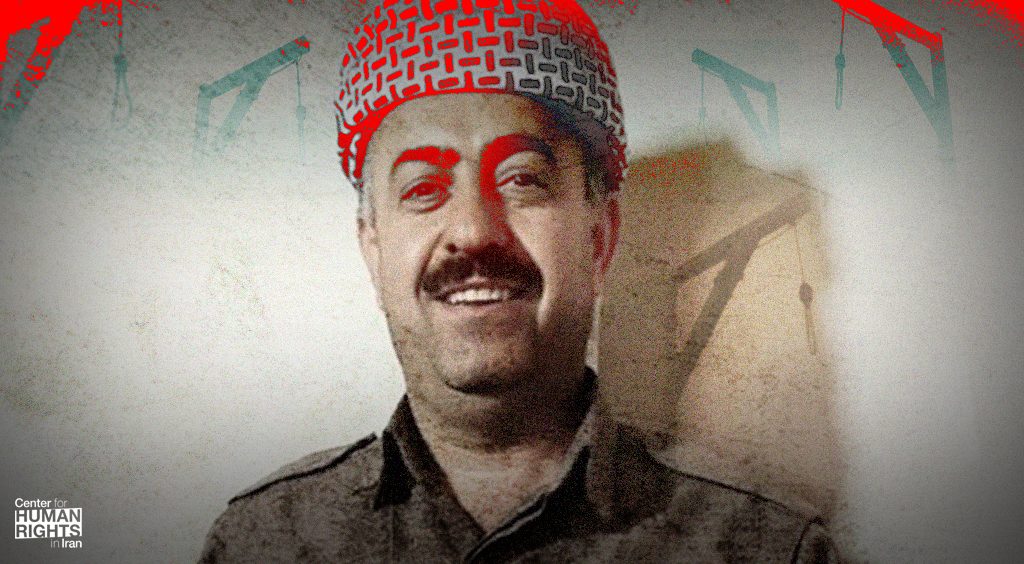Tortured, Sentenced to Death Without Lawyer: Iran Must Halt Execution of Political Prisoner
 Heidar Ghorbani Should Be Granted Case Review
Heidar Ghorbani Should Be Granted Case Review
August 31, 2021 – Iran’s judiciary should stay an execution order against political prisoner Heydar (or Heidar) Ghorbani, who was tortured and sentenced to death without a lawyer, and grant him a case review, the Center for Human Rights in Iran (CHRI) said in a statement today.
“Executions based on forced confessions extracted under torture and after trials without legal representation are murder, not justice,” said CHRI Executive Director Hadi Ghaemi.
“Severe due process violations urgently warrant a judicial review of this case,” Ghaemi added.
Ghorbani, 48, a member of Iran’s Kurdish ethnic minority group, was arrested with two other men in October 2016 following the killing of several Revolutionary Guard members in the city of Kamyaran, Kurdistan Province, in northwestern Iran.
During his trial, Ghorbani denied the charges, arguing that he was not a member of a Kurdish political organization and never even had a weapon when the victims were killed.
Ghorbani was initially sentenced to 90 years in prison and 200 lashes for “assisting in intentional murder” and “membership and collaboration” with the Kurdish Democratic Party of Iran (KDPI), a political opposition group that the Iranian government has banned.
Then, in a separate case, Ghorbani was charged with “armed rebellion against the state” and sentenced to death—without his lawyer present during the trial.
One of his former cellmates, Ebrahim Yousefi, published an audio file on August 29, 2021, describing marks of torture that he had seen on Ghorbani’s body after Ghorbani was interrogated in the Intelligence Ministry’s detention center in Sanandaj during the winter of 2017.
In September 2020, Amnesty International published a report stating that following Ghorbani’s arrest on October 11, 2016, “the authorities put him in solitary confinement for several months and subjected him to enforced disappearance.”
The report adds: “He has said that during this period, he was repeatedly tortured to give a video-recorded ‘confession’ that was broadcast by the state-run Press TV prior to his trial in March 2017, in violation of the presumption of innocence. He said his interrogators kicked and punched him, deprived him of sleep, and forced him to lay on the ground while they walked over his chest causing him a feeling of suffocation. He was denied access to a lawyer during the investigation stage, and his lawyers were denied full access to his court file at the trial stage.”
Ghorbani’s requests for a judicial review by Iran’s Supreme Court were denied in September 2020 and August 2021.
After the most recent rejection of his review request, Ghorbani’s case was sent from the Revolutionary Court in the city of Sanandaj to the Office for the Enforcement of Sentences, his lawyer Saleh Nikbakht said on August 12, 2021.
“The accusation of armed rebellion against Mr. Ghorbani is not valid because a rebel is someone who is a member of an organization and uses a weapon against the Islamic Republic, and none of those apply to my client,” he added.
Iran carried out at least 246 executions in 2020, thereby retaining its place as the top executing country in the Middle East and North Africa and the second worldwide after China, according to Amnesty International.






